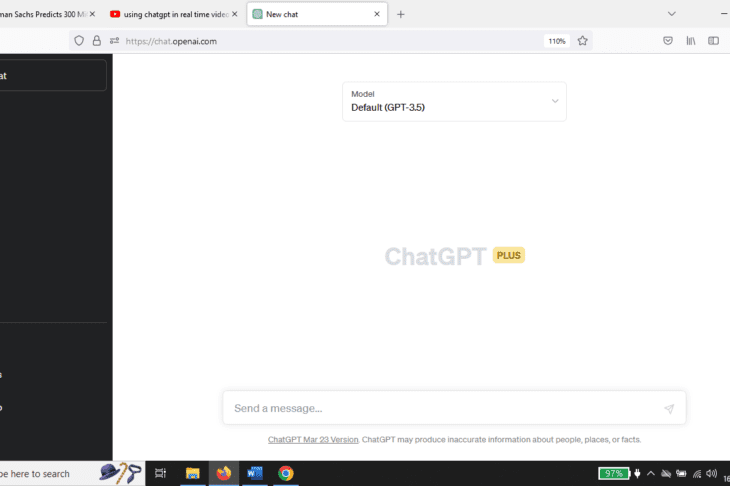
What is Organic Traffic and How Do I Get It? An SEO Guide for Beginners
One of the most valuable sources of people to your website is organic traffic, which brings in visitors through search engines without relying on paid advertisements.
The importance of organic traffic cannot be overstated, as it often leads to higher conversion rates and increased brand awareness. The truth is, however, that it takes a bit of work to put in place and you don’t instantly see results as you might with an approach like Pay Per Click advertising.
To help you navigate the world of SEO and organic traffic, this guide will provide an in-depth look at various aspects, from understanding keywords to implementing on-page and off-page SEO strategies. By the end, you should have a solid foundation in SEO and the necessary tools to start driving more organic traffic to your website.
Understanding Organic Traffic and SEO
Organic traffic refers to the visitors that land on your website through unpaid search results on search engines like Google, Bing, and Yahoo. These visitors find your website by typing in a query or keywords relevant to your content or services.

Unlike paid traffic, which comes from advertisements and sponsored content, organic traffic is earned naturally because of your website’s relevance, authority, and user experience.
Search engine optimization (SEO) is the process of enhancing your website’s visibility in search engine results pages (SERPs) to attract more of this organic traffic. SEO aims to improve your website’s ranking for specific keywords and phrases that users are searching for, making it more likely that they will click on your site.
There are three main pillars of SEO:
- On-page SEO: This involves optimizing individual web pages to rank higher in search results and attract more relevant traffic. On-page SEO requires you to focus on things like content quality, keyword usage, meta tags, and internal linking, which are all under your control as a website owner.
- Off-page SEO: This focuses on external factors that influence your website’s ranking, primarily through the acquisition of backlinks. These are links from other websites pointing to your site, which can improve your site’s credibility and authority in the eyes of search engines.
- Technical SEO: This encompasses the behind-the-scenes aspects of your website that can affect its performance, security, and indexing and includes factors like website speed, mobile-friendliness, and site architecture.
Organic traffic and SEO are intrinsically linked. By optimizing your website for search engines, you increase the chances of it appearing higher in SERPs, which in turn can lead to more organic traffic. To achieve this, you need to implement a combination of on-page, off-page, and technical SEO techniques if it is going to work well.
SEO is an ongoing process that requires continuous effort, as search engine algorithms are constantly evolving. Staying up to date with the latest SEO best practices and adapting your strategy accordingly is crucial to maintaining and growing your organic traffic.

It’s important to note that organic traffic is not the only source of website traffic, but it’s often considered the most valuable due to its high-quality nature and its stickability. Users who find your site through organic search are actively looking for information, products, or services related to your business, which means they are more likely to be engaged and convert into customers.
Additionally, organic traffic is often more cost-effective than paid advertising, as it doesn’t require a continuous investment in ads to maintain.
The Importance of Keywords in Generating Organic Traffic
Keywords are the words and phrases that users enter into search engines when looking for information, products, or services. They are the foundation of SEO, as search engines use them to determine the relevance of your website to a user’s query. By targeting the right keywords, you can attract more organic traffic to your website and increase your visibility in search results.
- Head keywords: These are single-word, high-traffic keywords that are often very competitive, making it difficult for new or smaller websites to rank for them. While they can drive a large volume of traffic, head keywords are usually less targeted, which means lower conversion rates.
- Long-tail keywords: Long-tail keywords are longer, more specific phrases that usually consist of three or more words. Although they have lower search volumes compared to head keywords, they tend to be less competitive and have higher conversion rates because they target users who are further along in their decision-making process.
- LSI keywords: Latent Semantic Indexing (LSI) keywords are semantically related terms to your main keyword. These are important for SEO because they help search engines understand the context of your content, which can improve your website’s relevance and ranking.
To identify the most relevant keywords for your website, you need to conduct keyword research. There are various tools available to help you with this, such as:
- Google Keyword Planner: A free tool provided by Google Ads that allows you to discover new keyword ideas, search volumes, and competition levels.
- SEMrush: A comprehensive SEO tool that offers keyword research, competitor analysis, and other useful features to help you optimize your website for organic traffic.
- Ahrefs: A popular SEO tool with a powerful keyword research feature, providing detailed information on keyword search volumes, keyword difficulty, and more.
- Ubersuggest: A free keyword research tool that generates keyword ideas, search volume data, and competition levels.
Once you’ve identified the right keywords for your website, it’s important to strategically incorporate them into your content. Here are some best practices for using keywords effectively:
- Include your main keyword in the title tag, meta description, and header tags (H1, H2, etc.) of your web pages.
- Use your main keyword and LSI keywords naturally throughout your content without overstuffing. Aim for a keyword density of around 1-2%.
- Include long-tail keywords in subheadings and within the body of your content to target more specific user queries.
- Use LSI keywords to provide context and improve the overall relevance of your content.
By understanding the importance of keywords and implementing them effectively, you can significantly improve your website’s chances of ranking higher in search results and attracting more organic traffic. Remember to conduct regular keyword research and update your content as needed to stay competitive and relevant.
On-Page SEO Techniques to Increase Organic Traffic
High-quality, engaging, and informative content is the cornerstone of on-page SEO. Ensure that your content provides value to your readers by addressing their needs, answering their questions, and offering solutions to their problems. This will not only help you rank higher in search results but also encourage users to share your content, which can further increase your organic traffic.
While there’s no strict word count requirement for ranking, longer content tends to perform better in search results because it provides more in-depth information. Aim for at least 1,000 words per blog post or article, but remember that quality is more important than quantity.
Make your content easy to read by using short paragraphs, bullet points, and subheadings. This helps users quickly find the information they’re looking for and keeps them engaged with your content.
Use of multimedia: Incorporate images, videos, infographics, and other multimedia elements to make your content more engaging and visually appealing. This can also help break up large blocks of text and improve the overall user experience.
Meta tags
- Title tag: The title tag is an HTML element that specifies the title of your web page. It’s displayed in search results as a clickable headline and should include your main keyword. Aim for a title tag length of 60-70 characters to ensure it displays correctly in search results.
- Meta description: The meta description is a summary of your web page that appears below the title in search results. It should include your main keyword and entice users to click on your website. Keep your meta description between 150-160 characters for optimal display.
- Header tags: Header tags (H1, H2, H3, etc.) help search engines understand the structure of your content and identify the main topics. Include your main keyword in the H1 tag, and use long-tail keywords and LSI keywords in H2 and H3 tags where appropriate.
Internal linking
Internal links connect one page on your website to another. They help search engines crawl your site and understand the relationship between different pages. Additionally, they can improve the user experience by guiding visitors to related content on your website. Aim to include 2-3 internal links in each piece of content, and use descriptive anchor text that includes relevant keywords.
URL structure
A well-structured URL is important for both search engines and users. Keep your URLs short, descriptive, and easy to read, and include your main keyword. Use hyphens to separate words in the URL, and avoid using special characters, numbers, or uppercase letters.
Optimizing images
Optimizing your images can improve your website’s load time and make it more user-friendly. Use descriptive file names that include relevant keywords, and compress images to reduce file size without compromising quality.
Additionally, add alt text to your images, which helps search engines understand the content of the image and can improve your site’s accessibility.
Off-Page SEO Techniques to Boost Organic Traffic
Backlinks, also known as inbound or incoming links, are links from other websites pointing to your site. They are one of the most important factors in determining your website’s authority and search engine rankings. A higher number of high-quality backlinks can significantly improve your website’s organic traffic.
Backlinks can be categorized into two types – dofollow and nofollow. Dofollow links pass on SEO value to your website, while nofollow links do not. It’s crucial to focus on acquiring dofollow links from reputable websites to improve your off-page SEO.



Building backlinks can be challenging, but there are several strategies to help you acquire them, including:
- Creating high-quality, shareable content that other websites will naturally want to link to.
- Guest blogging on relevant websites within your niche.
- Reaching out to influencers and industry experts for collaborations or interviews.
- Utilizing social media to share your content and gain exposure.
- Conducting outreach campaigns to request links from other websites.
Promoting your content on social media platforms like Facebook, Twitter, LinkedIn, and Instagram can increase its visibility, attract more visitors, and encourage users to share your content, which can lead to more backlinks. Create engaging social media posts, use relevant hashtags, and share your content consistently to maximize its reach.
Guest blogging involves writing articles for other websites within your niche in exchange for a backlink to your site. This not only helps you gain valuable backlinks but also exposes your content to a new audience, increasing your website’s organic traffic. Focus on guest blogging opportunities on high-authority websites that are relevant to your industry.
Influencer outreach involves connecting with industry influencers, bloggers, and experts to collaborate on content or promote your website. This can help you gain high-quality backlinks and increase your website’s credibility in the eyes of search engines. Reach out to influencers in your niche with personalized messages, explaining how your content or product can benefit their audience.
Tracking organic traffic
Monitoring your website’s organic traffic is essential to determine the effectiveness of your SEO efforts. Use tools like Google Analytics to track your traffic over time, analyze user behaviour, and identify which pages or keywords are driving the most organic traffic.
Keep an eye on your keyword rankings in search engine results pages (SERPs) to evaluate your website’s performance. Tools like SEMrush, Ahrefs, and Moz can help you track your rankings for targeted keywords and monitor changes over time.
Organic traffic is valuable only if it leads to conversions, such as sales, sign-ups, or inquiries. Track conversion rates for your organic traffic to determine the success of your SEO efforts and identify areas for improvement.
Conduct regular SEO audits to identify and address any issues that may be affecting your website’s performance. This includes checking for broken links, duplicate content, and on-page optimization issues.
In conclusion, organic traffic is a vital component of any successful online business. By understanding the importance of organic traffic and implementing a comprehensive SEO strategy, you can improve your website’s visibility, attract more visitors, and ultimately, boost conversions and revenue. This guide has provided an overview of the key concepts and strategies for beginners, including keyword research, on-page and off-page SEO techniques, and monitoring your SEO success.
Remember that SEO is an ongoing process that requires consistent effort and adaptation to stay competitive in the ever-changing digital landscape. Stay up to date with the latest SEO best practices, monitor your website’s performance, and continually refine your strategies to maximize your organic traffic growth.
By investing time and effort into your SEO efforts, you can reap the long-term benefits of increased organic traffic, higher search engine rankings, and greater online visibility for your business. Keep learning, stay committed, and watch your website’s organic traffic grow over time.
Further Resources for SEO Beginners
To continue expanding your knowledge of SEO and organic traffic, consider exploring the following resources that offer valuable insights, tips, and strategies for beginners:
SEO blogs and websites
- Moz Blog: A leading source of SEO knowledge, the Moz Blog features in-depth articles, guides, and case studies covering various aspects of SEO and digital marketing.
- Search Engine Journal: This website offers the latest news, trends, and best practice in SEO, as well as comprehensive guides and expert insights.
- Ahrefs Blog: Ahrefs is a popular SEO tool, and their blog provides valuable information on keyword research, link building, and other essential SEO topics.
Online courses and tutorials
- Google’s SEO Starter Guide: This free guide from Google offers a comprehensive introduction to SEO best practices and techniques.
- Moz’s Free SEO Learning Center: Moz’s learning centre provides a wealth of free resources, including articles, videos, and quizzes, to help you learn the basics of SEO.
- SEMrush Academy: SEMrush offers a variety of free courses on SEO, content marketing, and PPC, taught by industry experts.
SEO communities and forums
- SEO subreddit (r/SEO): This active Reddit community offers a platform for SEO beginners and experts to discuss strategies, share resources, and ask questions.
- WebmasterWorld: This forum covers a wide range of topics related to SEO, digital marketing, and website management, providing valuable insights and discussions.
By exploring these resources and engaging with the SEO community, you can continue to grow your knowledge and skills in the field, ultimately leading to greater success in driving organic traffic to your website.

